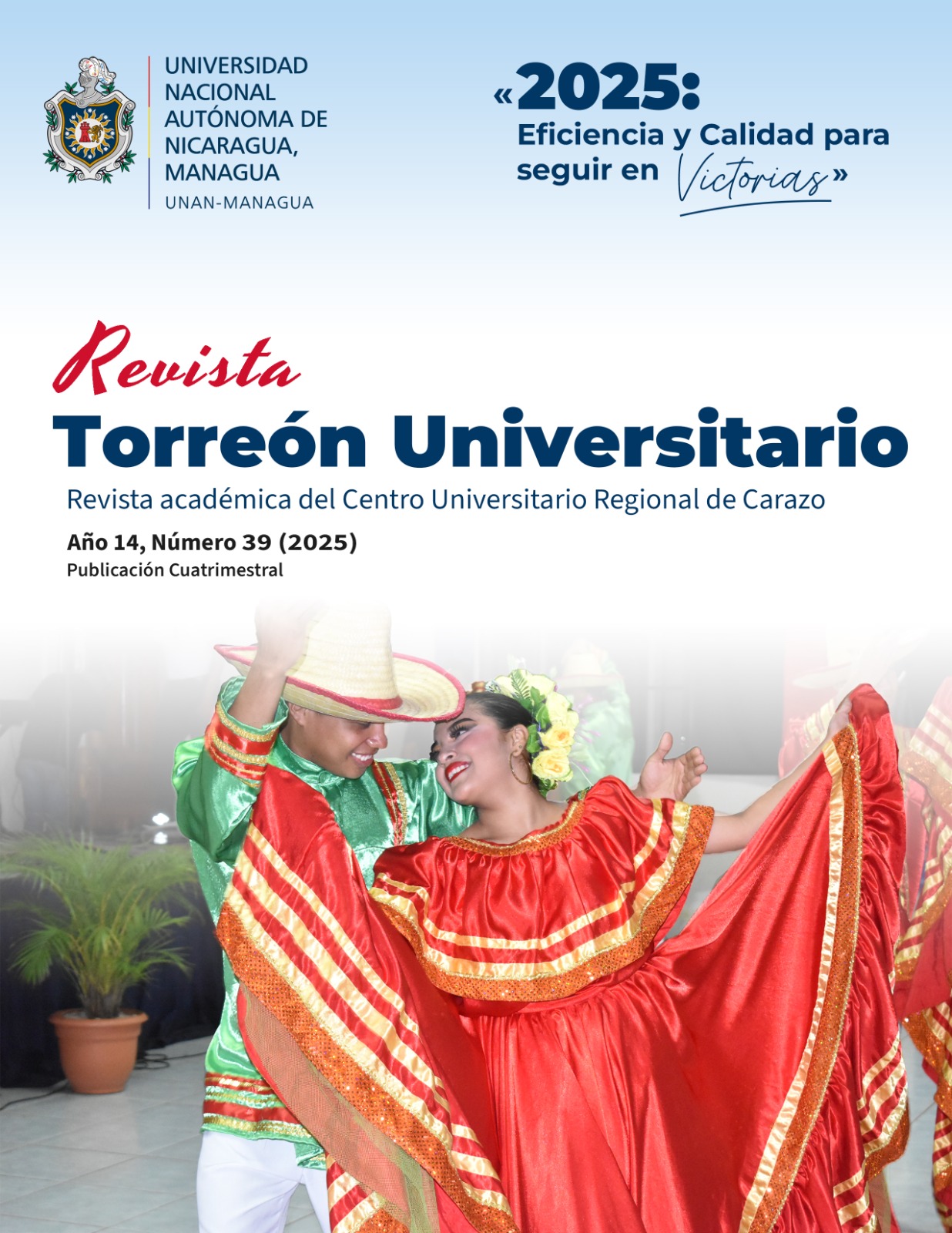The management of the Language and Literature curriculum from the scope of action of the advisory role in secondary education.
DOI:
https://doi.org/10.5377/rtu.v14i39.20137Keywords:
Advisor, SWOT analysis, Curriculum management, Secondary education, Performance, Language, LiteratureAbstract
The present study shows the implementation of the application of the SWOT analysis methodology focused on the secondary education advisory field. The objective was to determine the integration of the different levels of action of the Hispanic Language and Literature curriculum in. The educational authorities of District IV of the municipality of Managua authorized the application of the methodology at the Maestro Gabriel school. Now, the management of the curriculum is defined, the relationship of the curriculum with the national plan to combat poverty proposed by the Government of Reconciliation and National Unity (GRUN). Likewise, the definition of the vision and mission promoted by the Ministry of Education (MINED) is presented. Furthermore, the difficulties, strengths, threats and opportunities presented by the educational institution from this area are identified and the participation of the advisor is analyzed with the help of the SWOT analysis method, under the socio-critical paradigm, with a qualitative approach and the methods: inductive, analysis and synthesis. The results of the research are satisfactory because the advisor’s ability to manage the Language and Literature curriculum is enhanced. However, the advisor is overworked. For this, a strategic support plan is proposed with the purpose of contributing to the advisor’s performance through an exchange of knowledge.
Downloads
References
Bermúdez, L., & González, L. (2011). La competencia comunicativa: elemento clave en las organizaciones. https://www.redalyc.org/pdf/1990/199018964006.pdf
Córdoba, H. (2017). Investigación cualitativa. https://digitk.areandina.edu.co/bitstream/handle/areandina/3556/Investigaci%C3%B3n%20cualitativa.pdf
Cuero, J., Espinosa, A., Guevara, M., Montoya, K., Orozco, L., & Ortiz, Y. (2007). PLANEACIÓN ESTRATÉGICA HENRY MINTZBERG. https://joseordinolaboyer.files.wordpress.com/2011/11/job_mintzberg_planeacion-estrategica.pdf
Educación y formación profesional, (2022). http://www.centroeducativolavid.edu.gt/nextlevel/es/quienes-somos/mision-vision-valores/
Elliot, J. (1920). La investigación-acción en educación. John Elliott. https://books.google.com.ni/books?id=eG5xSYGsdvA C&printsec=frontcover& hl=&source=gbs_ge_summary_r&cad=0# v=onepage&q&f=false
Meneses J. y Rodríguez D. (2011). El cuestionario y la entrevista. https://femrecerca.cat/meneses/publication/cuestionario-entrevista/cuestionario-entrevista.pdf
MINED, (2015). Ministerio de educación (Nicaragua). https://www.ecured.cu/Ministerio_de_Educaci%C3%B3n_(Nicaragua)
Ossorio, A. (2003). Planeamiento Estratégico. http://biblioteca.clacso.edu.ar/Argentina/inap/20171117042438/pdf_318.pdf
Tech, (2022). El currículo de la Lengua y Literatura. https://www.techtitute.com/ni/educacion/blog/curriculo-lengua-literatura
MINED, (2019). Cuarta unidad pedagógica lengua y literatura. https://nicaraguaeduca.mined.gob.ni/wp-content/uploads/2019/12/Segundo-Semestre-Cuarta-Unidad-Pedag%C3%B3gica-Lengua-y-Literatura-7-9.pdf
Nivela (2020). Formulación de estrategias. http://scielo.sld.cu/pdf/rus/v12n4/2218-3620-rus-12-04-45.pdf
Thoreau (2000). Metas y objetivos y planes de acción. http://cdigital.dgb.uanl.mx/la/1020111445/1020111445_030.pdf
Downloads
Published
Issue
Section
License
Copyright (c) 2025 National Autonomous University of Nicaragua, Managua

This work is licensed under a Creative Commons Attribution-NonCommercial-NoDerivatives 4.0 International License.
The authors who publish in this journal agree to the following terms.
- The author or authors of the articles, essays or research grant the National Autonomous University of Nicaragua, Managua (UNAN-Managua) the editing rights (copyright) of the submitted work, therefore the University has the exclusive right to publish the article for the entire copyright period.
- These copyrights/authors authorize Torreón Universitario Magazine and the University to edit and disseminate/publish the article in said Magazine, including printed and electronic reproduction, storage, retrieval and any other type of publication, and sources of secondary information as services. of summaries and databases, they also empower it to protect the article against unauthorized use for dissemination by printed or electronic media (PDF, HTML, EPUB, XML or others).
License for use of content
The magazine uses the Creative Commons Attribution-NonCommercial-NoDerivs 4.0 International License.
Under this statement:

This journal is licensed under a Creative Commons Attribution-NonCommercial-NoDerivatives 4.0 International License. It can be copied, distributed and transmitted publicly as long as the author and source are cited (Revista Torreón Universitario), it should not be modified or used for any commercial purpose. The full license can be found at http://creativecommons.org/licenses/by-nc-nd/4.0/.



